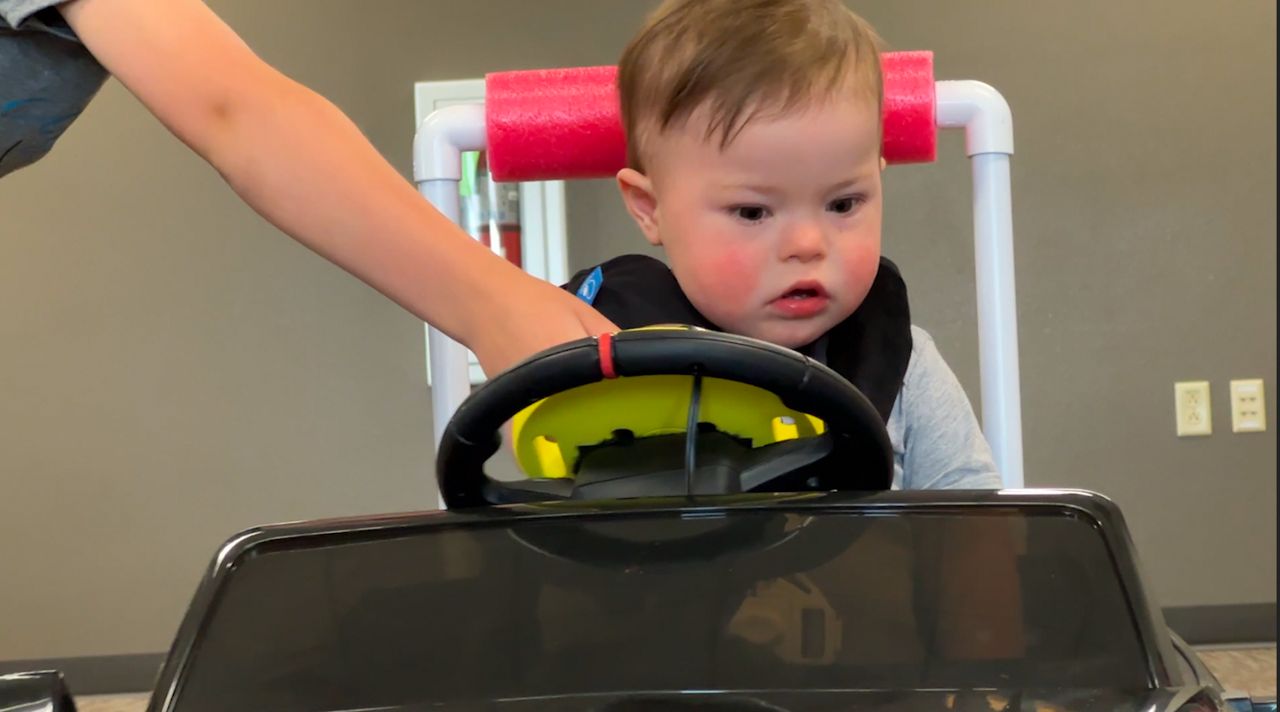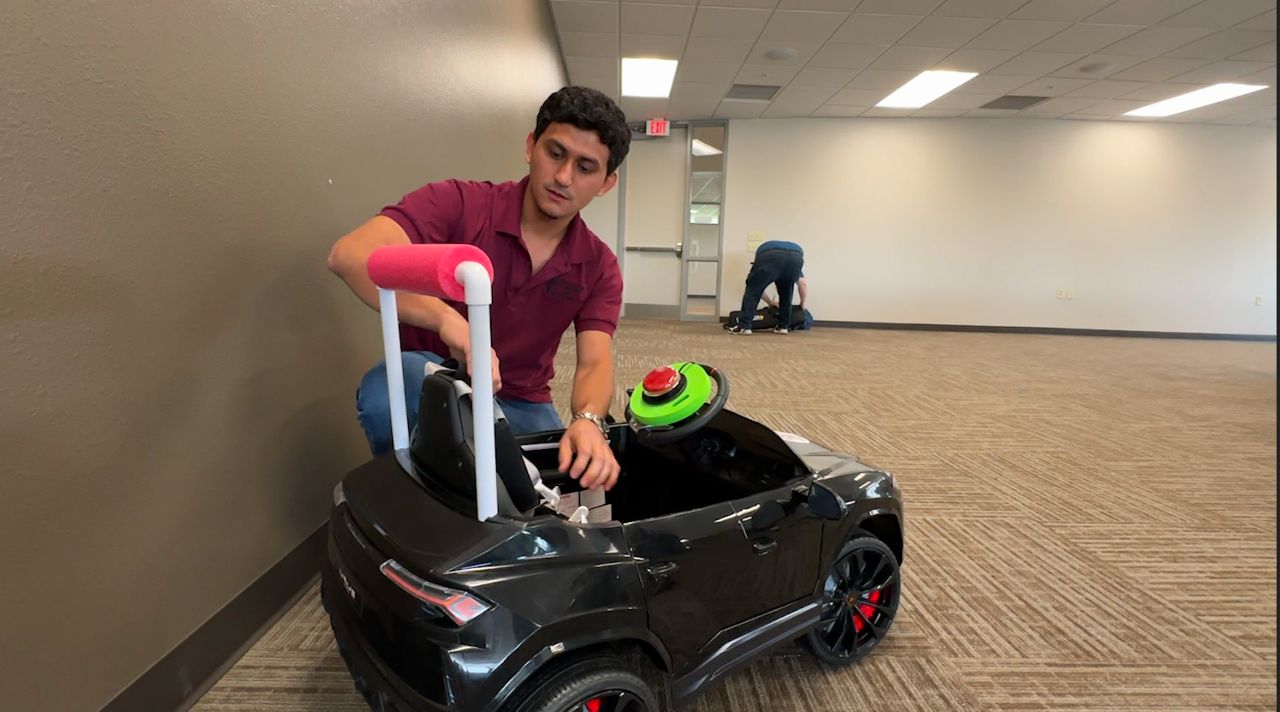GRAND CHUTE, Wis. — Myles Hill is the owner of a new Lamborghini.
Well, it’s a little smaller with a lot less horsepower, but it’s still designed to give a 19-month-old Clintonville boy increased mobility and independence.
The modified electric ride-on car is being provided to his family through the Go Baby Go! Program from Children’s Wisconsin.
Students at Fox Valley Technical College (FVTC) recently started building the cars for people like the Hills.
Lisa Hill and her family received the car Friday.
“It’s a huge blessing. The boys are super-excited,” she said. “They were a little concerned because some of the things they wanted to do when we found out we were pregnant is teach him how to bike. When they found out he had Downs Syndrome they were worried they wouldn’t be able to do some of those things. They get to teach him how to use this, he gets to go along on our bike rides, our walks, and it gives Myles a little bit more freedom, too, so they can see that he’s just like every other kid.”

Pressing a large button in the center of the steering wheel allows Myles to move the car.
“A friend made us a little button to practice with. He would, as you saw, keep pushing, pushing, pushing, but not holding it,” Lisa Hill said.
After about 10 minutes, Myles held the button down and rolled backwards about 30 feet.
“To see in a short period of time that he understands, ‘I push it and I go.’ Those little steps are huge steps for us,” Hill said.
Children’s Wisconsin partnered with engineering students at Fox Valley Technical College who are in the Electronics Club.
Modifications are designed and carried out by students like Carlos Luna.
“I might as well use my knowledge to help other people,” he said. “We can start with something as basic as (modifying) a car, but those kids will appreciate it.”
The FVTC program expects to build two cars a month over the next year.
“I know they will be happy with the car. They will feel that warmth in their hearts from people caring about them,” Luna said. “They need to know they are not alone in this situation. We have a lot of people here who are trying to help.”

Car operation is limited by a remote control.
Children’s Wisconsin also partners with Marquette University's Biomedical Engineering department in Milwaukee. The program is free to qualifying applicants.
Hill said having the cars built closer to home is helpful for the Clintonville family.
“It’s about a two-and-half hour-driive for us, so to be able to have this resources here, I can’t thank everybody enough who makes this possible for us,” she said.



